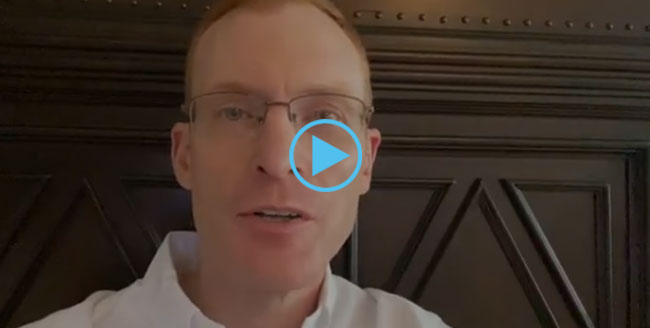Welcome, dear reader, to a guide that dives deep into the often murky waters of marketing rehab services, especially to vulnerable populations. It’s a delicate subject, one where ethics can get entangled with the desire to help those struggling with addiction. Imagine, for a moment, a world where cabinetry held the key to unraveling the complexities of rehab marketing ethics. Yes, as bizarre as it sounds, the story of cabinetry is a tale worth exploring.
Understanding Vulnerability: A Window into the World of Addiction
You, like many, might not have considered the intricacies of drug rehab marketing until faced with the reality of a loved one battling addiction. It’s a journey marked by emotional turbulence, and the last thing anyone needs is exploitative marketing. Picture this: a desperate family, searching for a lifeline, stumbling upon a website adorned with glossy promises and misleading information.
In such moments, the vulnerability of those seeking help becomes palpable. The urgency to find solutions creates a breeding ground for unscrupulous marketing practices. You, as a marketer, hold a powerful position, capable of either contributing to the healing process or exploiting the pain of others for profit.
The XPS of Compassion: Navigating the Ethical Maze
Now, let’s touch on XPS, an acronym that might seem out of place in the realm of rehab marketing. Yet, much like a well-crafted piece of furniture, it fits seamlessly into the narrative. XPS, or the eXtended Perplexity and Sensitivity, should be your guiding principle.
As you delve into the world of drug rehab marketing, understand that the path is intricate and nuanced. It’s not just about selling a service; it’s about recognizing the humanity in every person seeking help. Your words and actions have the power to either instill hope or deepen despair.
Crafting Authentic Narratives: A Tale of Cabinetry and Trust
Consider the concept of cabinetry, a seemingly mundane term in the world of rehab marketing ethics. Imagine you’re in the market for a new cabinet, seeking something reliable and built to last. Your journey takes you to a store where a charismatic salesperson weaves a narrative around a particular set of cabinets, highlighting their strength, durability, and timeless design.
Now, transpose this scenario onto the landscape of drug rehab marketing. Families, desperate for a solution, encounter websites or advertisements that paint a rosy picture of a particular rehab facility. It’s the same art of storytelling, but here the stakes are higher, involving the well-being of individuals battling addiction.
Your responsibility as a marketer is to ensure that the narrative you craft is authentic. The trust placed in you by vulnerable individuals and their families is fragile; handle it with the care you’d give to a delicate piece of cabinetry.
Transparency: Shining a Light on the Shadows
In the world of drug rehab marketing, transparency is your greatest ally. It’s easy to succumb to the temptation of embellishing success rates or downplaying the challenges of the recovery journey. However, the ethical high ground lies in being open and honest.
Think back to a moment when transparency made a significant impact on your perception of a product or service. Apply that lesson to your approach in marketing rehab services. Be clear about the methodologies, success rates, and potential challenges. This transparency not only builds trust but also aligns your marketing efforts with a genuine commitment to helping others.
Empathy in Action: Beyond Words to Genuine Care
Drug rehab marketing isn’t just about catchy slogans and persuasive copy; it’s about embodying empathy in every interaction. Your audience isn’t just a statistic; they are individuals, each with a unique story of struggle and resilience. When crafting your marketing strategy, let empathy be the driving force.
Consider a time when someone’s genuine care made a lasting impact on you. Channel that feeling into your approach to drug rehab marketing. Understand the emotional weight carried by those seeking help and let your communication reflect a sincere desire to assist, not exploit.
Building Bridges, Not Walls: Collaboration in the Rehab Ecosystem
Rehab marketing isn’t a solitary endeavor. It’s about building bridges with healthcare professionals, support groups, and communities. In the pursuit of ethical marketing, collaborate with those who share a commitment to genuine care and support.
Imagine a world where everyone involved in the rehab ecosystem works in harmony. It’s a vision where individuals receive comprehensive care, and marketing serves as a conduit for connecting people with the help they need. By fostering collaboration, you contribute to a collective effort toward healing and recovery.
Your Ethical Compass in the World of Rehab Marketing
As you embark on the journey of drug rehab marketing, remember that your words and actions hold immense power. The vulnerability of those seeking help necessitates a compassionate and ethical approach. The anecdotes of cabinetry and XPS serve as metaphors for authenticity and sensitivity in your marketing endeavors.
Craft your narrative with the precision of a skilled artisan creating a timeless piece of furniture. Let transparency be the guiding light that dispels the shadows of doubt. Infuse empathy into every interaction, recognizing the human stories behind the statistics. Collaborate with others in the rehab ecosystem to build a supportive network.
In the end, your ethical compass will determine the impact of your marketing efforts. Choose the path of compassion, authenticity, and transparency, and you’ll not only attract those in need but also contribute to a world where rehab services are marketed with integrity and genuine care.



















